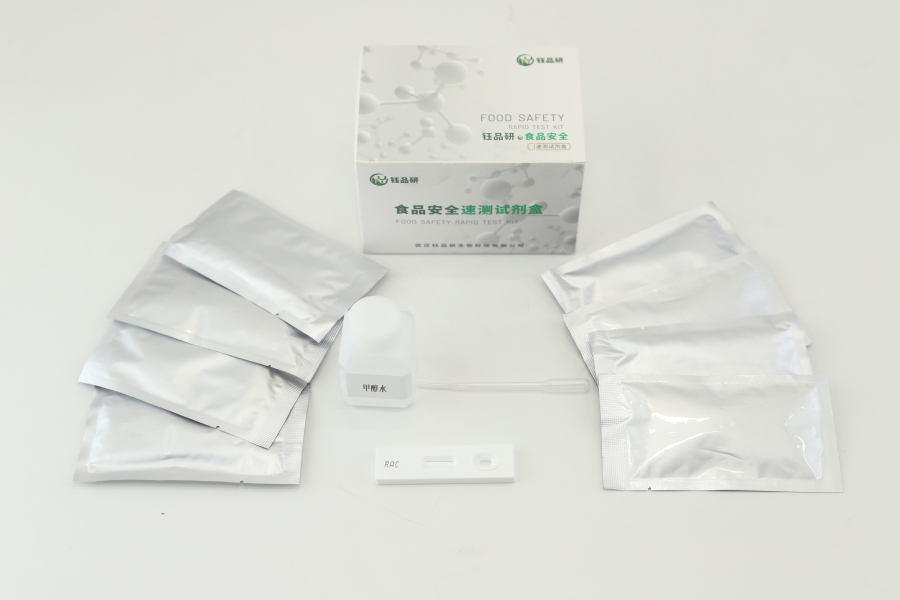
tetracyclines are broad-spectrum antibiotics that have been widely used in animal husbandry and agriculture to promote animal growth and prevent diseases. Oxytetracycline is one of the typical representatives of tetracyclines. If its use in food animals is not standardized, it may lead to drug residues in animal-derived foods, such as meat, eggs, milk, etc. These residues may not only cause potential harm to human health, such as triggering allergic reactions and increasing bacterial resistance, but also may affect the normal development of children's bones and teeth. Therefore, strict testing of tetracyclines such as oxytetracycline and tetracycline in food is an important measure to ensure food safety.
The harm of oxytetracycline and tetracycline residues cannot be ignored. Long-term intake of food containing such drug residues may cause the normal flora in the human intestine to be dysregulated and affect the function of the digestive system. What is more noteworthy is that bacteria are prone to develop drug resistance genes during long-term contact with drugs. Once these drug resistance genes are transferred to human pathogens, it may lead to more difficult treatment of infectious diseases and pose a serious threat to public health. In addition, for special groups such as pregnant women, breastfeeding women, and infants and young children, the latent risk of tetracycline drug residues is higher, which may affect the normal growth and development of fetuses or infants.
In order to effectively control the risk posed by tetracycline drug residues, it is essential to establish a sound detection system. Through systematic testing of food raw materials, production processes and final products, substandard products can be detected and eliminated in a timely manner to prevent them from entering the market. This is not only a strong guarantee for consumers' health rights and interests, but also an inherent requirement for safeguarding the reputation of the food industry and promoting the healthy and sustainable development of the industry. By strengthening the frequency and coverage of sampling inspections, regulatory authorities can effectively monitor the quality of food in the market and form a deterrent against illegal use of antibiotics.
At present, there are various detection methods for tetracycline drug residues, including high-performance liquid chromatography (HPLC), liquid chromatography-mass spectrometry (LC-MS/MS), and rapid detection by immunochromatography. Among them, rapid detection reagents play an increasingly important role in grass-roots supervision, enterprise self-inspection and on-site rapid screening due to their advantages such as easy operation, short detection cycle and relatively low cost. As an enterprise focusing on the production of food safety rapid detection reagents, Wuhan Yupinyan Bio is committed to providing the market with sensitive, accurate and convenient detection products to help build a food safety defense line.
Wuhan Yupinyan Bio is well aware of the importance of food safety testing for people's livelihood. The rapid detection reagents for tetracyclines it develops and produces are designed to meet the detection needs in different scenarios. Whether it is the quality control link of food production enterprises, the daily supervision and sampling inspection of market supervision departments, or the rapid screening work of third-party testing agencies, such rapid detection reagents can provide timely and reliable test results, providing strong technical support for food safety supervision. By continuously optimizing product performance, improving detection efficiency and accuracy, Wuhan Yupinyan Bio strives to contribute to ensuring the "safety on the tip of the tongue" of the public.
To sum up, the residue detection of oxytetracycline and tetracycline drugs is an indispensable part of food safety work. It is not only related to the health of consumers, but also to the long-term development of the food industry. With the continuous progress of detection technology, especially the increasing maturity and popularization of rapid detection technology, we have reason to believe that the risk of tetracycline residues in food will be more effectively controlled. The continuous investment and innovation of Wuhan Yupinyan Bio and other enterprises in the field of rapid detection reagents will provide a solid material foundation and technical guarantee for building a safer and more reliable food safety system, and jointly protect the public's dietary safety.

